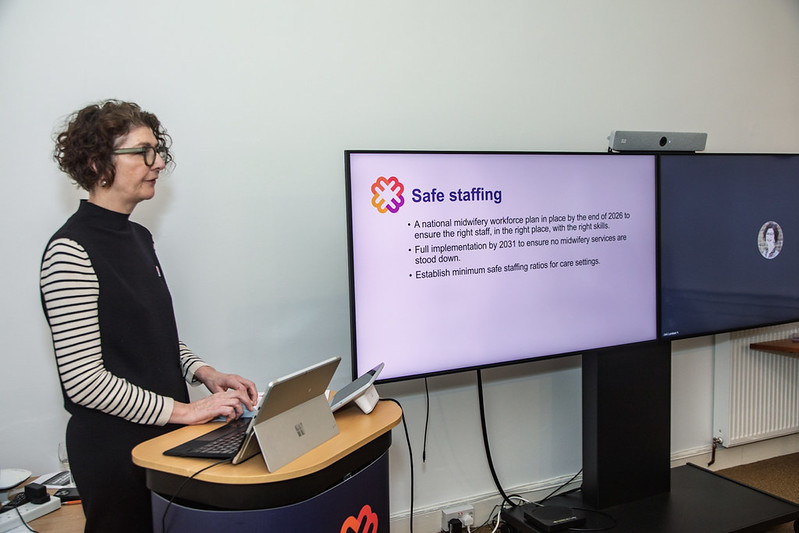Members of the Royal College of Midwives (RCM) in Wales have had their say on the 5.5% pay award.
The results of a two-week consultation with midwives and maternity support workers (MSWs) in working in the NHS in Wales has resulted in over half (56%) of respondents saying the award is ‘unacceptable’.
The RCM says the results of its consultation send a stark and very clear message to the Government and employers about the morale and experiences of its members in Wales. Earlier this year the RCM highlighted that during just one-week midwives and MSWs in Wales worked hundreds of extra unpaid hours to deliver good care and keep services running safely. That same survey showed alarmingly two thirds of midwives (67%) said they did not feel their services were safely staffed in the March period.
Commenting, RCM’s Director for Wales, Julie Richards says:
“Our members have made their voices clear and many feel this pay award does not recognise the reality of midwives and MSWs working lives which includes long hours (often unpaid), heavy workloads and staffing shortages all impacting on the health, safety and morale of staff, which ultimately impacts the quality of the care that can be delivered. This is the message we will be taking to the Welsh Government and into workplaces where we want to see real change on the issues facing midwives and MSWs such as limiting those excess hours and reducing burnout, tackling unpaid overtime, job evaluation and ensuring that banding outcomes reflect job content.
The RCM says at a time when the NHS in Wales is struggling to retain midwives and pay being a crucial lever in that that they want to see action on the Pay Review Body (PRB) recommendations that the Welsh Government accepted to address the structural issues in the Agenda for Change pay system that the RCM has highlighted for a number of years.
As this is a pay award and not a pay offer, the RCM says that the 5.5% will be automatically implemented to its Agenda for Change (AfC) members’ salaries during November, however it was crucial to gauge the views of all its members on the award to inform the RCM’s work on pay and terms and conditions going forward.
Julie added:
“What hasn’t helped is the delays to pay rises that we’ve seen year after year. Our members were due this pay award on 1 April, it will now be November before they see that in their salaries. This is unacceptable and again has eroded the morale of midwives and MSWs making them feel undervalued. We need to get the pay review body process back on track, so staff have faith in the process again. So, we are calling on the Welsh Government to initiate the pay process for 2025/26 without delay.”
The RCM says its informed the RCM Board of the results and has confirmed it will continue to work with its members in their workplaces to identify action it can take on wider issues at local level. For members who want to find out more on what the 2024 pay award means to them they can visit the Wales Pay Hub on the RCM’s new website.

